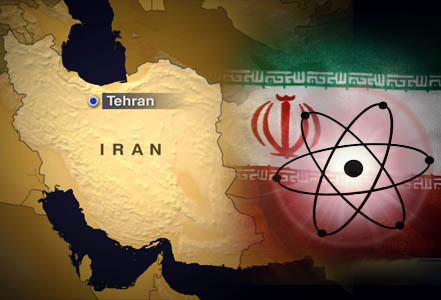At The Atlantic, Golnaz Esfandiari takes note of a new report that attempts to determine the impact an military strike on Iran's nuclear program could have on Iranian civilians:
Experts believe the Isfahan uranium-conversion facility — which contains an estimated 371 metric tons of uranium hexafluoride — is one of the four Iranian sites likely to be targeted if Israel or the United States were to decide to take military action in an effort to delay or cripple Iran's nuclear program. The University of Utah's Hinckley Institute of Politics and the NGO Omid for Iran teamed up to produce a study that concludes that a military strike on the facility could have tragic consequences for Maryam and thousands of other residents of her centrally located city, which has a population of 2 million.
It's unlikely that Maryam would die as an immediate result of such a bomb attack. But she could be among the estimated up-to-70,000 people who would be killed or injured after being exposed to toxic plumes released as the result of such strikes. They would reach the city within an hour. Such a scenario would mean that the people of Isfahan could experience a catastrophe similar to the gas leak in Bhopal or the nuclear meltdown at Chornobyl, says Khosrow Semnani, the author of the report, which is titled, "The Ayatollah's Nuclear Gamble."
"People's skin could be burnt [when coming in contact with the plumes], they could become blind, their lung could be destroyed, their kidneys could be damaged, and in the future they could face other health problems such as skin cancer and [other forms] of cancer," Semnani says. The report analyzed the impact of preemptive conventional strikes on four key nuclear sites: Isfahan's uranium conversion facility; Natanz's fuel-enrichment plant; Arak's heavy-water plant; and Bushehr's nuclear power plant. Workers at those sites — who include scientists, workers, support staff, and soldiers — would be among the first victims of a bombing campaign. The report estimates that the casualty rate at the sites would be close to 100 percent.
"According to our estimates, the number of casualties of the bombing of the four sites would be about 5,000 people," Semnani says. "If the bombing would include more than those four sites, then the immediate casualty would be up to 10,000 people." The report warns that the grim scenario could be magnified by the lack of readiness on the part of Iranian authorities, who have a poor record of disaster management and who lack the capacity to handle deadly radioactive fallout in the aftermath of a strike on its nuclear sites.
Afshin Molavi, an Iran expert and a senior fellow at the New America Foundation, says the study fills a gaping vacuum in Western discussions about military strikes on Iran, which often ignore the human cost of such actions. "People talk very callously about the prospect of military strikes, and they frame it in the geopolitical fallout, the geo-economic fallout, what will happen to the oil price and all of these issues. But nobody has ever talked about the humanitarian consequences of a military strike on Iran," Molavi says. "Those humanitarian consequences are grave, so I think this report fills a very important vacuum. It needs to be read by policy makers at the highest levels in Western governments; it needs to be read in Israel; it needs to be read all over the world."
Indeed it does.
We have already created enemies around the world thanks to indiscriminate drone attacks, bombing, and other tactics. During the Vietnam War, the civilian population largely turned against us because of the manner in which our military actions were leading to the deaths of non-combatants. Is it really worth the death or injury of as many as 70,000 people to follow the bidding of Benjamin Netenyahu and those here in the United States who never met a war they didn't like, especially when it's still not clear that our vital national interests are threatened by Iran in a manner that requires us to go to war? More importantly, do we really want to create another generation of enemies who very well may decide to bring the war to our own shores again? The Iranian people most assuredly do not deserve to be punished for the actions of their government, and I'd hope that someone would consider this report before blindly sending us off into yet another war.
H/T: Andrew Sullivan


No hay comentarios:
Publicar un comentario